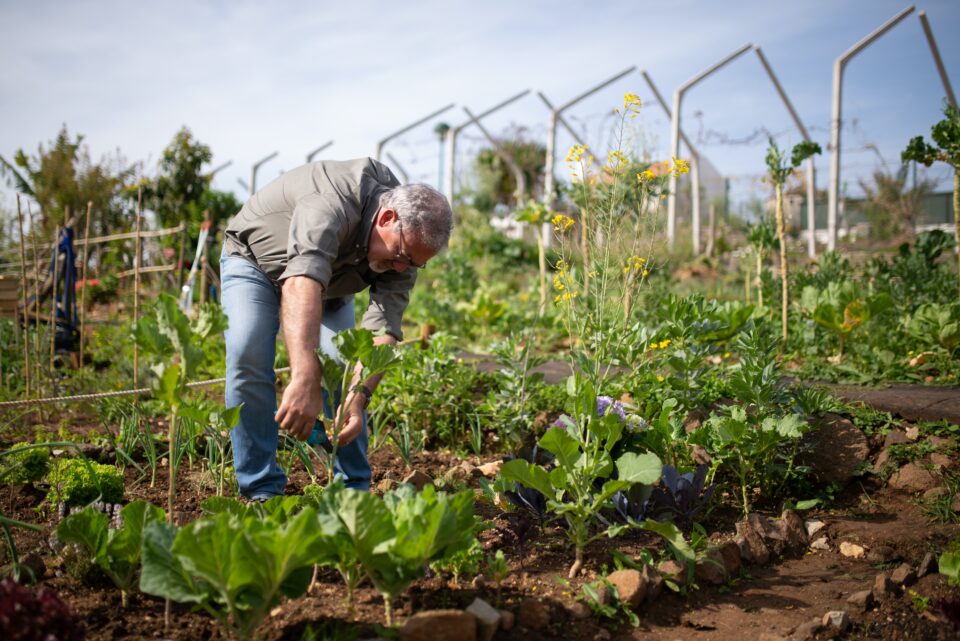Organic gardening encompasses a lot of techniques. It covers items such as seeds, tools, techniques, and other such things. There are so many ways that you can grow your own organic garden, either for enjoyment or for improving your overall diet. This article has advice that can help you find what you need.
Aspirin water will strengthen your plants against diseases. Your plants can benefit from a solution you can make by dissolving one and one-half aspirins into a couple of gallons of water. Spray the plants with the aspirin water to assist plants in battling disease. You should spray your plants about once every three weeks.
A great first step to having a successful organic garden is to test the acidity of the soil in your garden. The ideal number is 6.5, if your soil is on the low end, it’s too acidic and if it’s on the high end it’s too alkaline. Neither of those situations lends itself to a successful garden. So by purchasing a soil testing kit before planting, you will assure yourself a beautiful organic garden in the summer.
Keep your seeds warm and humid. Most seeds are healthy at a temperature of about seventy degrees. Place your pots next to a heating vent or install an additional heater if needed. You can cover your pots with plastic films so that the seeds can keep their humidity and warmth.
Are you busy with your organic garden? Remember, before you replant your flowers or vegetables outside in cooler weather, you need to get them ready for the change in temperature and light! For a few weeks, move your plants to a colder spot with no light for a few hours. Gradually increase the amount of time you leave your plants in the cold. After a few weeks, your plants should be ready for the cooler outdoors.
Learn to water your garden efficiently. A soaker hose can be laid in the garden and left on with low water pressure. This frees you up from having to hand-water the plants, so you can do other gardening work. Take care with seedlings, though — they are still delicate and need to be watered by hand.
Utilize frost covers for your plants when it gets cold. Frost may cause tiny ice crystals to form in your plant and shred the natural, soft flesh of the plant. Milk jug containers and other plastics can help assist you in making a closed environment around your plant. Ideally you want to protect your plant from being exposed to the cold outside air.
Encourage toads to take up residence in your organic garden. Toads are a natural predator of many of the pesky bugs that will eat and destroy your crops. Create makeshift toad houses out of overturned broken clay pots and keep soil nice and moist to make it conducive to amphibian life.
You can kill weeds naturally. You need to have many layers of newspapers in order to provide proper weed control. Weeds require sunlight to grow. If you put a thick layer of newspaper on them, weeds will not be able to get light or air, and they will die! It’s easy for newspapers to break down over an extended period of time, making them great for compost. You can cover the newspapers with mulch to make them look more attractive if you like!
A carpenter’s belt is a great investment for any organic gardener. This is because organic gardening involves many small tools that are all frequently used such as trowels, water sprays, pruners, and gloves. Rather than making several trips back and forth between your shed and the garden, a tool belt can help you carry all of your tools at all times.
Fill your gardens with flowers. You shouldn’t spend too much time and energy planting annual types of flowers as they will only last one season. Keep these types in a limited area of your garden. For larger areas, go with perennials. That way you will have flowers again next year.
Cultivate your soil to improve the quality of your soil. When you cultivate, or till, your soil, you loosen up parts that may be compacted. Compacted soil does not absorb water well, and it discourages soil micro-organisms from growing in it. When your soil is properly tilled, seeds can thrive and grow.
When you are digging holes in your yard in which to plant shrubs, bushes, or trees, do not make it perfect. Holes with perfect sides will actually work against you by restricting plant growth. The roots cannot penetrate the sheer face made by a shovel.
When you first begin using organic produce you will realize that it tends to rot quite a bit faster. This is because less preservatives are used. Having a lower shelf life means that you need to cook or eat the produce a little bit faster than you would normal store bought options.
If you have children and want to become more involved with them, starting a small organic garden can be a great way. This type of hobby is wonderful for family bonding but also helps your children to start to understand many of the basics of the circle of life and growth.
In conclusion, organic gardening is a very broad subject that covers a lot of gardening products and techniques. There are some right ways and wrong ways to apply this knowledge, but there is so much potential for making your garden unique. Hopefully, this article has given you some advice on how to make organic gardening work for you.
